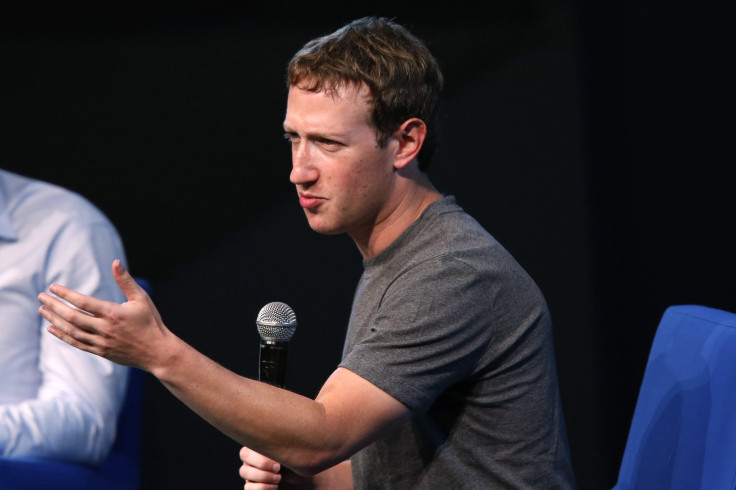Mark Zuckerberg Is Not Fluent In Mandarin Chinese, But It Is Still Impressive

The crowd at Beijing’s Tsinghua University roared and hooted with applause and laughter, but students and faculty weren’t in the presence of a rock star. They were at a Q&A session with Facebook founder Mark Zuckerberg, who decided to show off his new Mandarin-language skills to the mostly Chinese-speaking audience. “I’m really happy to be in Beijing,” Zuckerberg said in Chinese with slight hesitance. His simple sentence was met with “oohs” and “ahs.”
“My Chinese is very terrible, but today I will use Chinese, OK?” The crowd cheered and clapped some more. This call and response continued for several minutes as Zuckerberg delved into more complex vocabulary, talking not only about his wife of Chinese descent, Priscilla Chan, and his in-laws, but also addressing his new advisory board role at the university’s School of Economics and Management.
To the unknowing ear, Zuckerberg's Mandarin may sound native. However, most native Chinese speakers, or even those seriously learning Chinese as a second language, can immediately hear that the Harvard dropout’s Chinese is still a work in progress.
People on Twitter were some of his harshest critics:
Mark Zuckerberg speaking Mandarin is like the white guy at the bar trying to impress an Asian girl with "Ni hao."
— Angry Asian Man (@angryasianman) October 23, 2014
As a Mandarin speaker, I can tell you that Mark Zuckerberg's Chinese is flat-out bad. Embarrassing if he actually practices every day.
— MichaelAlanConnelly (@malanconnelly) October 23, 2014
The Internet needs to calm down. Mark Zuckerberg speaks Chinese like a seven-year-old: http://t.co/xCitsJwI0n
— Isaac Stone Fish (@isaacstonefish) October 23, 2014While some people who have mastered the Chinese language may not be impressed with Zuckerberg’s progress after supposedly studying it for three years, in a country where business diplomacy is everything, having some proficiency in Chinese goes a long way. “His [American] accent is quite heavy, but I still admire him!” one Weibo user posted along with the video. “His Chinese is quite good, he has a basic understanding of what he’s being asked, and what he is saying.”
“It takes a lot of confidence to address a crowd of native speakers when you are so clearly not a native speaker, which to me is the impressive part!” another user wrote.
It’s true, Chinese is not an easy language to pick up, but those who try should communicate a sense of conviction -- and perhaps this is where Zuckerberg faltered. Throughout his 30-minute interview, Zuckerberg doesn’t shake his nervous demeanor, which could just be his natural disposition, and powers through his sentences at an awkward pace, occasionally correcting himself in English and tacking “yeah” at the ends of his sentence --a distinctly English-language habit. For many Chinese, when a foreigner speaks their language the initial reaction is still generally shock. And, if you aren’t speaking their Chinese, you may as well be speaking English -- if they can sense hesitation in your language ability, they in turn will be hesitant to believe you can speak it or understand it.
That being said, Zuckerberg’s language critics are somewhat right -- if it were anyone else, his Chinese probably wouldn’t be considered to be so impressive and definitely wouldn’t be called fluent. By the end of the Q&A, Zuckerberg was using English to answer some of the audience questions, and occasionally slipping into the hybrid language of Chinglish.
“You can tell some of his answers he was able to prepare, so when questions came, he didn’t know how to speak as well. Still, that’s more than I expected,” another user said on Weibo. “I know his Chinese isn’t perfect, but it is much better than my English!”
But as Zuckerberg continues to try and master Chinese, maybe he could also use some help in English. He told the crowd that after asking his wife why he was struggling so much with listening comprehension in Chinese, she responded, “Your listening comprehension is poor in English, too.”
© Copyright IBTimes 2024. All rights reserved.












